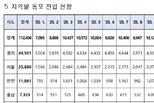
Newsnomics AJAY ANGELINA reporter |
India is implementing migrant controversial law allowing Indian citizenship to the non-Muslim illegal immigrants from neighboring countries Pakistan, Afghanistan and Bangladesh.
The Citizenship (Amendment) Rules 2024, will enable the persons eligible … to apply for grant of Indian citizenship,” said Indian ministry in a statement.
The controversial migrant law grants Indian nationality to Hindus, Parsis, Sikhs, Buddhists, Jains and Christians who entered India from Pakistan, Afghanistan and Bangladesh before December 2014 – but excluding Muslims who are in majority.
The Citizenship Amendment Bill (CAB) actually was passed in 2019,but its implementation was delayed after widespread protests and deadly violence erupted across the country resulted in deaths of many people.
In 2019, the nationwide protests drew people of all faiths who said the law undermines India's foundation as a secular nation. Muslims were particularly worried that the government could use the law, combined with a proposed national register of citizens, to marginalize them.
According to the country's Home Affairs Minister Amit Shah, writing on social media that Prime Minister Narendra Modi had "delivered on another commitment and realized the promise of the makers of our constitution to the Hindus, Sikhs, Buddhists, Jains, Parsis and Christians living in those countries".
“It gives sanctuary to people fleeing religious persecution” said India’s interior ministry
However, India's opposition congress party questioned the announcement, saying: "The timing right before the elections is evidently designed to polarize the elections."
On the other hand, the critics believes that the law is anti-Muslims.
Many among India’s 200 million Muslims fear the law is a precursor to a national register of citizens that could leave them stateless in the country of 1.4 billion.
PM Narendra Modi denies “Muslims are not covered by the legislation because they do not need India’s protection.”
Critics of the law say, “it is exclusionary and violates the secular principles enshrined in the constitution, which prohibits discrimination against citizens on religious grounds.”
Like, it includes migrants from non-Muslim countries fleeing persecution to India, including Tamil refugees from Sri Lanka and Tibetan Buddhists fleeing China’s rule.
It also does not address Rohingya Muslim refugees from neighboring Myanmar.
Human Rights Watch has called it “discriminatory” and said “religion is a basis for granting citizenship” for the first time in India and is exclusionary in its structure and intent"
It "goes against the constitutional values of equality and international human rights law." Says the Human Rights Watch.
The critics observed that PM Narender Modi increasingly mixed religion with politics in a formula that has resonated deeply with India's majority-Hindu population.
PM Modi’s mixture of religion and politics can clearly be seen in the construction of Hindu Temple at the site of demolished historic Mughal-era Mosque in northern Ayodhya city of India, that was destroyed by Hindu mobs three decades ago.
Historically August 1947 was the year when British India was partitioned by ending three hundred years of colonial rule with the creation two independent nations: India and Pakistan on the basis of religious affiliation, with the creation of a Muslim majority in West and East Pakistan and a Hindu majority in India.










